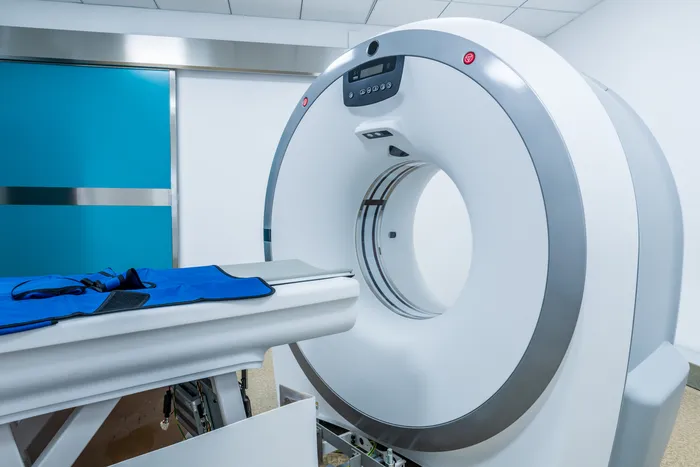6 min read time
Table of Contents

Typical Contingency Fee Percentages in Personal Injury Cases
Contingency fees are the typical payment model in personal injury cases, where attorneys receive a percentage, typically ranging from 25% to 40%, of any settlement or judgment.
Personal injury lawyers work under this model to ensure that their interests align with the plaintiff's success. These fees reflect the risk attorneys assume and the extra costs they may incur to win the case.
Common Contingency Fee Range (25%-40%)
The standard fee a personal injury lawyer takes typically falls between 25% and 40% of the recovery, and it is often based on the case's complexity, outcome, and the personal injury attorney's risk.
Factors that can increase a personal injury attorney's contingency fee percentage are:
- Case complexity
- Potential trial
- Expert witness costs
- Time required for resolution
- Client's recovery value
- Personal injury settlement size
- Deposition costs
How Settlement Size Influences the Contingency Fee Percentage
When a case settles for a large amount, personal injury attorneys can typically slightly lower their contingency fee percentage because the fixed fees they incurred, which include filing fees and expert costs, represent a smaller share of the total recovery.
However, in small to medium settlements, a personal injury attorney will often charge a higher percentage to cover the lawyer's fixed costs and risk.
Personal injury cases that resolve early may benefit from a reduced fee structure, whereas cases that go to trial often incur a higher contingency fee basis.
Common Factors That Affect the Percentage an Attorney Takes
When a personal injury lawyer works on a contingency basis, the percentage they take can vary widely.
Several key factors influence the amount an attorney takes from a personal injury case, from the case's complexity to the lawyer's experience and the jurisdiction's rules.
Experience and Track Record
Experienced attorneys often require higher percentages due to proven success, complex case handling, negotiation leverage, and vast connections due to years of experience.
Additionally, a strong track record of settlements and verdicts signals reliability, justifying a premium fee structure for an experienced personal injury lawyer.
Case Complexity and Likelihood of Litigation
Complex cases involving multiple defendants, disputed liability, or expert testimony often require more time, risk, and money, prompting attorneys to charge higher contingency percentages.
If a settlement from the insurance company is unlikely and a trial is probable, the fee often rises to reflect the added litigation effort and costs.
Alternative Fee Arrangements and Extra Charges
Besides the typical contingency fee, many attorneys offer alternative arrangements for a personal injury case, such as flat-fee or hourly plus contingency splits.
Also, as a client, you should be aware of additional costs, court filings, expert witnesses, and investigative fees that may be deducted from your final settlement or that you may incur personally in the event of a loss.
Additional Expenses You Can Incur as a Client
In a contingency arrangement, the lawyer's fee is a percentage of the recovery, but the client can still bear separate litigation costs in the event their personal injury lawyer loses the case.
Typical out-of-pocket costs a client can bear include:
- Court filing and docket fees
- Deposition and transcript expenses
- Expert witness retainers
- Investigation costs
- Obtaining medical records
- Opposing sides' legal fees
Additionally, filing fees for the initial complaint, discovery, and trial documents are part of the case expenses and are usually billed separately from the contingency fee.
Losing a personal injury case isn't just a loss but a potentially expensive one, so it's important that you work with an experienced lawyer from the Rodney Okano Car Accident Lawyer Law Firm by scheduling a free consultation at (702) 566-3600.
Pre-Litigation vs. Post-Filing Fees
When your personal injury claim is in pre-litigation, meaning it's being handled through negotiations with the insurance companies and opposing parties' personal injury lawyers, they will often charge a lower rate. However, the contingency fee basis can be raised to a higher percentage after filing a lawsuit.
Once a lawsuit is filed, filing fees, expert witness fees, and other trial-related costs are taken on by the firm, which prompts the lawyer to take a large percentage from the final settlement check.
Negotiating Your Contingency Fee and How to Maximize Your Takeaway
Personal injury attorneys often use a sliding-scale contingency fee agreement, meaning it can be negotiated, unlike a fixed fee.
The fee structure and contingency basis are negotiated to reflect whether the case is pre-litigation, post-filing, or trial.
A standard percentage of 30% is common for a settlement before filing, 35% after filing, and up to 40% if the case goes to trial.
Negotiating Lower Rates and Sliding-Scale Options
A contingency basis can be negotiated to take a lower percentage for early settlements. Don't let an attorney tell you otherwise, and if they do, you always have other options, like a Las Vegas personal injury lawyer from the Rodney Okano Car Accident Lawyer Law Firm.
Clients can request a free case evaluation to review the fee agreement, any additional costs, and how a firm's attorneys adjust their fees based on the current legal process.
How to Maximize Your Final Takeaway
Negotiate a tiered fee, 30% if settled early, 40% if trial, so you pay less when the case resolves quickly.
Ask for a lower pre-litigation rate, as many firms charge 33% instead of 40% for out-of-court settlements.
Ensure the attorney's retainer specifies that all out-of-pocket costs are reimbursed from the settlement before your share is calculated.
Regulatory Guidelines and Fee Caps
In the state of Nevada, medical malpractice cases have a fee cap of 35%, while other types of personal injury cases do not have a contingency fee cap, meaning an attorney is technically allowed to take as much as the client signs on.
However, just because there are no laws limiting how much contingency fee an attorney can take doesn't mean you should allow an attorney to pressure you into accepting a percentage larger than the standard contingency fee.
How Do Percentages Change When a Lawyer Withdraws or Multiple Firms Join the Case
If a lawyer withdraws from your personal injury claim, that lawyer will not be entitled to their contingency fee, and the new lawyer who takes your case will present you with a new fee agreement that outlines how fees and case expenses will be handled.
Clients should always clarify the fee agreement with each lawyer to ensure that the contingency basis and fee structure are clear.
In the event multiple firms are involved in the case, which typically only occurs in big cases, each legal team must understand how each law firm shares case progress and case expenses to ensure successful outcomes for their clients.
Which Is Better: Attorney Representation vs. Self-Representation
Hiring an attorney typically means a contingency fee of 25-40% of the recovery, with higher rates (up to 45%) for complex litigation or pre-litigation work.
The lawyer also covers court filings, expert witnesses, and discovery, deducting those out-of-pocket expenses from the final settlement.
In contrast, self-representation eliminates the contingency fee but requires the claimant to invest significant time in research, drafting pleadings, navigating procedural rules, and personally paying claim and trial fees.
While the self-representation approach may be lower, the risk of an unfavorable outcome can result in a smaller settlement or even a loss, potentially costing more in lost damages than the attorney's fee would have.
Personal injury lawyers work to secure a fair settlement and maximize the total settlement for the client, so in most cases, it's highly recommended to work with an attorney.
Obtain the Compensation You're Entitled To
Contact Us Today
Rodney Okano Car Accident Lawyer is a Las Vegas personal injury law firm with over 20 years of experience helping clients obtain maximum compensation following injuries from accidents such as car crashes, worksite injuries, and slips and falls. Over those years, The Rodney Okano Car Accident Lawyer Law Firm has become an experienced law firm that can ensure exceptional results for any of its clients.






